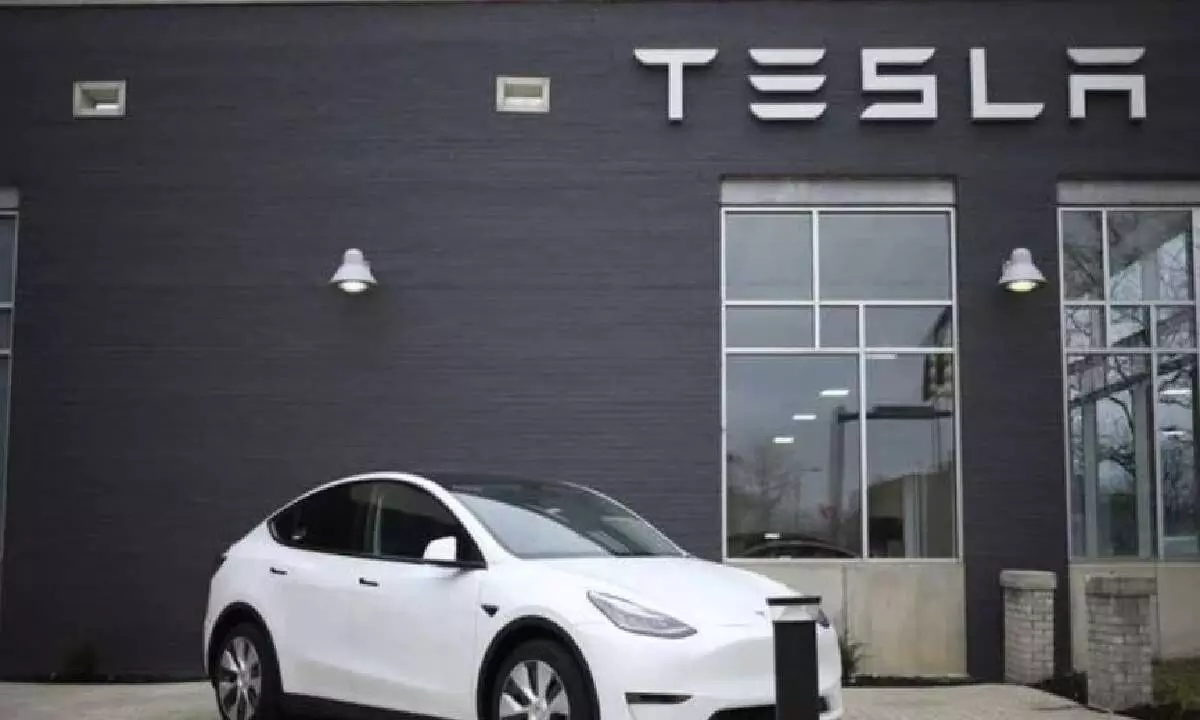Tesla bets big on India foray with Model 3
Industry watchers cautious about impact of Model 3 on existing EV players
image for illustrative purpose

Even as reports emerged about Tesla’s plans for a cheaper Model 3 (priced around Rs. 20 lakh) in India where it hopes to boost its supply chain ecosystem to the country, many industry experts on Thursday said achieving this price range appears to be a distant dream.
If all goes well, Tesla can reportedly produce five lakh electric vehicles annually with a price range of Rs. 20 lakh or upwards, given that the Elon Musk-run company plans to set up its auto parts and electronics chain in India.
According to experts, Tesla prices are nearly the same across the globe and currently, the base variant of the Tesla Model 3, which is the cheapest Tesla model available, is priced at $40,240 (approximately Rs. 33 lakh).
Importing this model into India will incur a cost ranging between Rs. 60 and Rs. 66 lakh. It should be remembered that India imposes a 100 per cent import tax on electric vehicles (EVs) priced above $40,000.
“However, this import duty can be eliminated by setting up local production. Despite this, the possibility of acquiring a $40,240 (or around Rs. 33 lakh) car for $24,366 (Rs. 20 lakh) still seems like a distant dream,” senior analyst Soumen Mandal from Counterpoint Research said.
This cost reduction could be achieved if Tesla models manufactured in India have fewer features compared to the ones available in the US.
“For example, certain hardware required for Full Self-Driving (FSD) could be eliminated and, instead, Advanced Driver Assistance System (ADAS) Level 2 could be included,” Mandal added.
The battery pack, imported from China, could have a capacity lower than 50kW and the electric motors could be of lower power. Moreover, the in-vehicle electronics could be reduced and a smaller centre display is used, according to the analyst.
After detailed talks between the Indian government and Tesla, a team from the latter will arrive in India. Tesla is also conducting meetings with industry executives in India. Reports are that Tesla is working on a ‘next gen’ EV platform that will support compact cars.
“The production cost of this platform is expected to be reduced by approximately 50 per cent compared to the present platform, enabling Tesla to enter the sub-$25,000 EV segment. We expect that India will become a manufacturing hub for these compact models,” Mandal noted.
The recent challenges in China have provided an impetus for Tesla to potentially explore, and establish a manufacturing base in India.
“The possibility of a Tesla in India at potentially around Rs. 20 lakh depends on several variables, including potentially attractive policy incentives and Tesla’s ability to accomplish efficiencies in supply chain and costs to leverage local manufacturing. All said, pricing decisions will be driven by Tesla's business strategy,” said Prabhu Ram, who heads the Industry Intelligence Group (IIG) at CyberMedia Research (CMR).
“The automotive market is highly competitive. While Tesla could get a competitive advantage with policy incentives, current automotive market incumbents would be spurred to invest further, and scale their EV portfolio,” Ram said.
However, it is still too early to determine how Tesla's entry into the Indian market will impact existing EV players. Companies like Tata Motors and MG cater to the budget segment of the EV market, while Tesla's price positions it in the premium segment.

